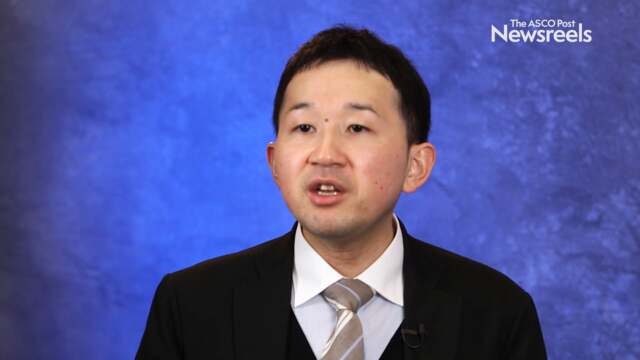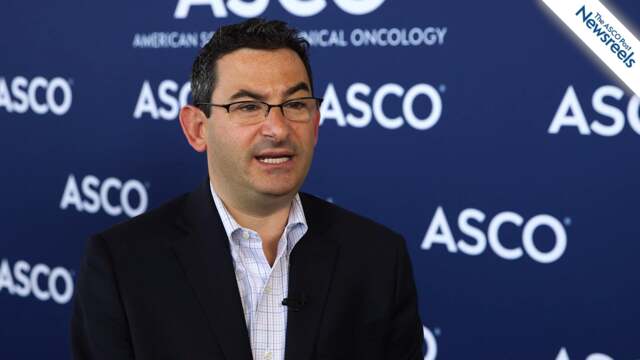Peter Schmid, MD, PhD, on Triple-Negative Breast Cancer: Results From the PAKT Trial
2018 ASCO Annual Meeting
Peter Schmid, MD, PhD, of Queen Mary University of London, discusses phase II study findings on AZD5363 plus paclitaxel vs placebo plus paclitaxel as first-line therapy for metastatic triple-negative breast cancer (Abstract 1007).
Sibylle Loibl, MD, PhD, of the German Breast Group, discusses phase II study findings on the addition of durvalumab to a taxane-anthracycline–containing chemotherapy in triple-negative breast cancer (Abstract 104).
Naoki Furuya, MD, PhD, of the St. Marianna University School of Medicine, discusses phase III study findings on a comparison of bevacizumab plus erlotinib to erlotinib in patients with untreated non–small cell lung cancer with activating EGFR mutations (Abstract 9006).
Jeremy S. Abramson, MD, of the Massachusetts General Hospital, discusses study findings on lisocabtagene maraleucel in relapsed or refractory aggressive NHL (Abstract 7505).
Gianni Bisogno, MD, of the University Hospital of Padova, discusses study findings on maintenance low-dose chemotherapy in patients with high-risk rhabdomyosarcoma (Abstract LBA2).
Apostolia-Maria Tsimberidou, MD, PhD, of The University of Texas MD Anderson Cancer Center, discusses findings on clinical outcomes, including long-term survival, according to the pathway targeted and treatment period (Abstract LBA2553).





